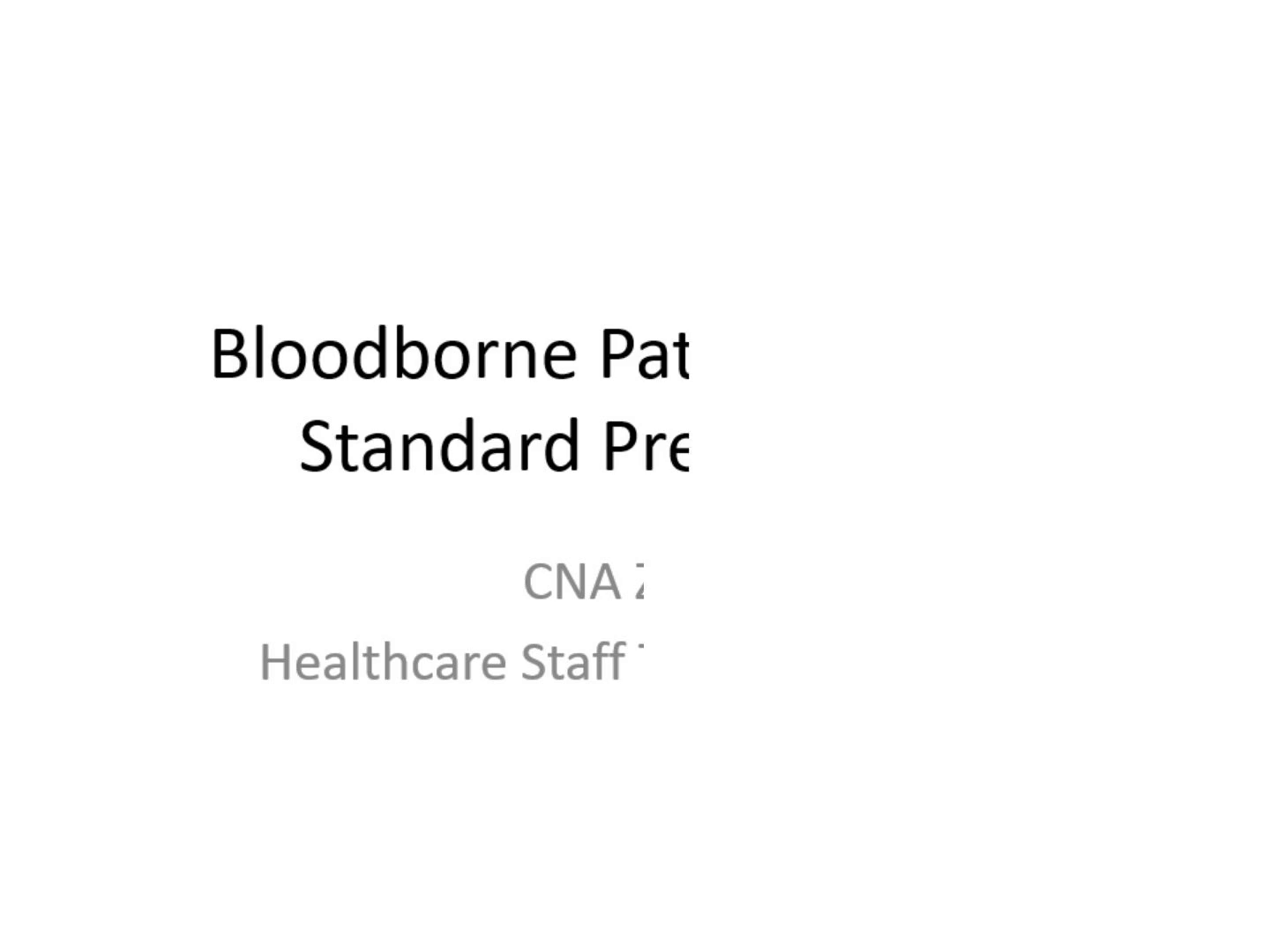Scene 1 (0s)
Bloodborne Pathogens and Standard Precautions. CNA Zone Healthcare Staff Training Module.
Scene 2 (7s)
Training Objectives. Upon completion, participants will be able to: • Identify organisms in blood and body fluids. • Describe and apply standard precautions. • Explain post-exposure procedures. • Understand the importance of Hepatitis B vaccination..
Scene 3 (20s)
Key Concepts. Bloodborne pathogens are microorganisms that can cause disease in humans: • Hepatitis B Virus (HBV) • Hepatitis C Virus (HCV) • Human Immunodeficiency Virus (HIV) Transmission occurs via contact with infected blood or certain body fluids..
Scene 4 (32s)
Standard Precautions. Universal precautions apply to all patients. They protect against bloodborne diseases and include: 1. Hand Hygiene 2. Use of Gloves 3. PPE 4. Sharps Disposal.
Scene 5 (45s)
Hand Hygiene. • Wash hands before and after patient contact. • Use soap and water for visibly soiled hands. • Alcohol-based rubs acceptable when not visibly dirty. • Wash for at least 15 seconds covering all surfaces..
Scene 6 (58s)
Use of Gloves. • Wear gloves during potential contact with blood or body fluids. • Change gloves between patients. • Wash hands after removing gloves. • Avoid reusing disposable gloves..
Scene 7 (1m 9s)
Personal Protective Equipment (PPE). • Wear masks, gowns, and eye protection for procedures likely to cause splashes. • Ensure correct fit and removal to avoid contamination..
Scene 8 (1m 20s)
Sharps Safety. • Use puncture-proof sharps containers. • Do not recap or bend needles. • Report sharps injuries immediately. • Follow facility protocols for disposal..
Scene 9 (1m 31s)
Post-Exposure Protocol. If exposure occurs: 1. Wash or flush affected area immediately. 2. Report to supervisor. 3. Seek medical evaluation. 4. Follow post-exposure prophylaxis recommendations..
Scene 10 (1m 44s)
Hepatitis B Vaccination. • Series of 3 injections over six months. • Post-vaccination testing ensures immunity. • Employers must offer the vaccine at no cost..
Scene 11 (1m 54s)
Worker Rights and Responsibilities. Under OSHA regulations: • Employers must provide PPE, training, and medical follow-up. • Employees must follow precautions and report exposures. • Confidentiality of health information is required..
Scene 12 (2m 7s)
Knowledge Assessment. Example Questions: 1. Name three bloodborne pathogens. 2. How long should you wash your hands? 3. What should you do after a needlestick? 4. What are the four basic standard precautions?.
Scene 13 (2m 20s)
Certificate of Completion. CNA Zone certifies that ________________________ has successfully completed the training on: Bloodborne Pathogens and Standard Precautions Date: ___________ Instructor: ___________.
